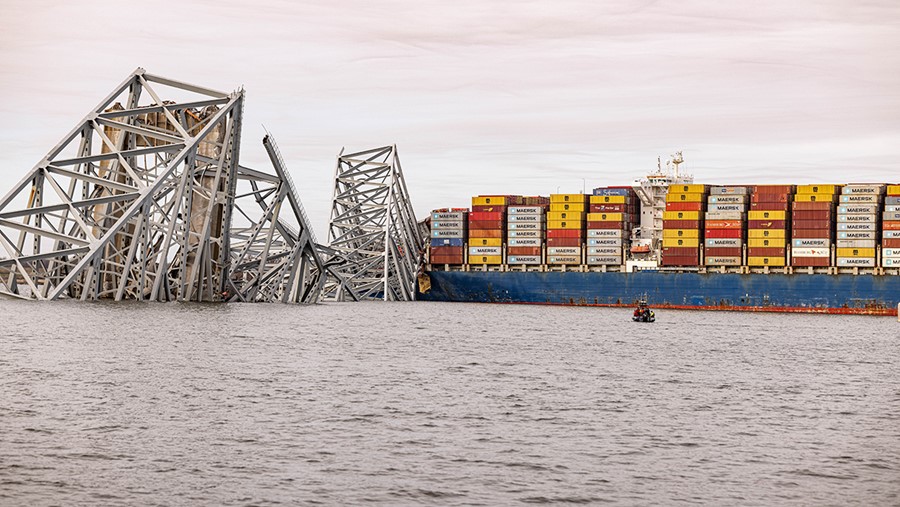Photo: David Adams / U.S. Army Corps of Engineers, Baltimore District, Public domain, via Wikimedia Commons
Interos is continuing to monitor supply chain impacts following the tragic collision between the cargo ship Dali and Baltimore’s Francis Scott Key Bridge. Impacts are already being felt as companies reroute shipments to other East Coast ports. The 11th largest port in the U.S., the Port of Baltimore handled $80 billion in foreign cargo in 2023. Maryland could lose $550 million to its GDP and $1 billion loss in total value of goods and services if the port is closed for 30 days. Early projections on potential global impacts vary, and come at a time when ongoing supply chain disruptions already cost the economy nearly $2 trillion dollars annually.
Interos is tracking several areas of concern in Baltimore:
- Sectors like automotive, manufacturing, and energy, are most vulnerable to disruption. Baltimore is the top port in the nation for automobile shipments, having imported and exported more than 750,000 vehicles in 2022.
- Auto imports are diverting to nearby ports like New York/New Jersey, Philadelphia, and Norfolk, Virginia, potentially leading to increased freight rates and congestion. However, many ports are already crowded with imported vehicles given a slowdown in EV and SUV sales. Some analysts predict auto manufacturers and dealers may moderate prices and offer discounts to move vehicles faster to avoid worsening backlogs.
- Coal is another pressing issue. Baltimore serves as a crucial hub for coal exports, and an extended port closure could damage U.S. energy exports. Baltimore ranked as the second busiest port in the U.S. for coal exports last year, with India being the largest importer. While some coal shipments can be redirected, not all ports are equipped to handle coal imports.
- Additionally, substantial amounts of nickel, tin, and copper stored in Baltimore may face increased transportation costs as suppliers resort to less cost-effective alternatives like trucking and rail.
This accident underscores how interconnected our nation’s vital supply networks are. It’s crucial for businesses to assess their nth Tier suppliers in the region to evaluate potential supply chain disruptions. Interos remains committed to providing relevant supply chain data to support informed decision-making.


